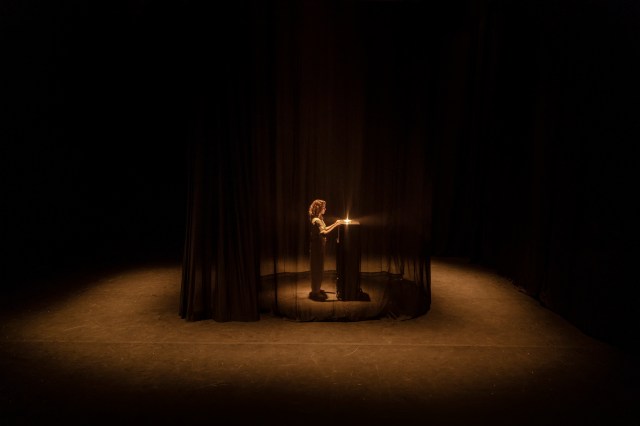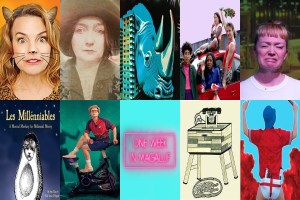Funeral at Edinburgh Festival Fringe – review
Ontroerend Goed’s exploration of the process of grief runs at ZOO Southside

It’s difficult to say too much about Funeral without giving away what gives it its power. Many aspects of it rely on not being entirely sure what comes next, nor even what awaits you once you’ve walked through the door of the venue. So if you want to avoid spoilers, it’s probably best to stop reading at the end of this paragraph, with my observation that it’s the most memorable, moving thing I’ve seen throughout this year’s Fringe.
Funeral has a script, set and props, but it isn’t quite a piece of theatre so much as a collective shared experience. It has elements of ritual, ceremony and support group, all of which are designed to draw together the disparate strangers of the audience and to meditate jointly on something that all of humanity has in common: loss and the process of grief.
Put together by Belgian company Ontroerend Goed, Funeral works its magic by drawing its audiences together and eliciting – or maybe it’s better to say compelling – them to interact with one another. The event begins by gathering the audience together in the foyer and teaching us a song about remembering and forgetting that we will sing together at the end of the piece. A company member asks if we would like to give the names of anyone we have lost and would like to remember, before leading us up the stairs to the performance space, giving us a hot hand towel on the way.
That’s because, as you enter the venue, you’re greeted with a line-up of the other audience members, each of which shakes your hand to welcome you into the room. So before the auditorium has even been inhabited, you’ve made a physical and, if you’re lucky, emotional connection with every other person in the room. So the collectivity of the experience is crucial. If we were only watching the actors then much of what gives the show its punch would be lost.
The actual performance space is darkened and hidden behind a pair of veils, giving it a distanced, set-apart quality from the rest of the audience. Within that space, the actors speak of things that they remember about those they’ve lost, sometimes something bodily like a laugh or a dimple, and sometimes an event, object or a place that they associate with them. They then lay out a trail or pathway, along which each member of the audience is invited to tread, and a gentle ritual action that we’re asked to present.
If the thought of this has you cringing then you needn’t worry: it’s done completely respectfully and entirely voluntarily. And it’s strangely powerful. In one sense, nothing really happens in Funeral, and any action takes place principally in the audience’s memories and psyche. But perhaps that’s why it works. Its impact will differ according to each audience member’s encounters with grief: mine have been mercifully light, but I can imagine some people being in pieces after it. Even for a cold-hearted cynic like me, however, the production was really very moving, and ultimately quite uplifting. We’re led through a carefully constructed experience with the greatest skill and empathy and, for me, time stood completely still for an hour which, for Edinburgh in August, is quite an achievement.















